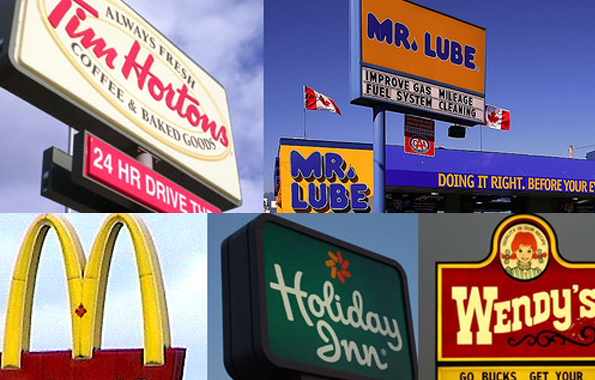
There are some great reasons to start a franchise when you decide to become an entrepreneur. You’re taking on an established product or service that has already been successful in the market and you still get to be your own boss. However, you’ll also get a ton of support from the franchise network to help you get the business moving and reach success.
The big question, however, is how do you choose the right franchise for you? There are often dozens of options in every field of franchising and you’ll have a ton of information to wade through to work out what each franchise offers. Here are some tips on getting that process right:
Know Yourself First
It’s a good idea before you being your search to be clear about your own requirements from a franchise so that you can examine opportunities in context:
What Do You Want From The Franchise?

People start businesses for very different reasons. Some franchise owners will want to take on a franchise to create a large revenue stream others will do it so they can dip their toes in the entrepreneurial scene and others will simply want to get a bit more free time. If you know what it is that you want from a franchise – you’re much more likely to be able to work out which franchise opportunity will deliver what you want.
There are two standard types of franchisee: there’s the absentee owner who will engage a staff to run the business from a day-to-day perspective and will only get involved in big decisions and in emergencies otherwise they’re going to be pretty much hands off. The other type is the owner operator who will run the business and be involved constantly.
Some franchises don’t allow for absentee owners; they expect that you’ll get hands on with your business or they’d rather work with someone who will. Others may be targeted at absentee owners with a large amount of support for putting processes in place so that your business runs itself.
Once you’ve determine this – you’ll also want to look at how much money you can sink into a franchise. Some franchises, such as hotel chains, can require investments in the millions, top fast food brands can be a million or more, and at the other end of the scale there are plenty of opportunities for a few thousand dollars or more.
You need to be sure how much money you’re prepared to invest (and look at the total cost of ownership – many franchises require equipment purchases not just a purchase of the franchise itself).
You also want to take an honest look at yourself and ask whether you have the business skills to make a franchise work. There’s little point in taking on a franchise where you don’t have the basic skills to make the business profitable.
Signs of a Good Franchise

Once you know what you want and how much you have to invest; you need to take a look at the franchises open to you in a little more detail. There are some strong indicators of a good franchise scheme:
- High quality support systems. The whole point of buying into a franchise is that you’re taking on an established model that promises a high chance of business success. You’ll want to ensure that they provide enough support to walk you through every stage of the business from setting up to learning how to grow that business.
- Good people at corporate. You’re going to spend a lot of time dealing with the head office and the corporate team – make sure that you like and get on with these people. You don’t want to run a franchise where talking to the people who are supposed to help you leaves you uncomfortable.
- An interest in you. Good franchisors care about their franchisees – they see you not as a walking check book but rather as an investment in their greater brand. They should be looking at how you can grow with them and how they can make things work for you from the outset.
Things to Look For in the Franchise Disclosure Documents

You will be provided with franchise disclosure documents (FDD) before you sign on the dotted line – you should review these carefully and ideally you should do that with a legal and/or financial advisor who knows what to look for. These are the bits you really want to focus on in the FDD:
- Litigation. The franchisor has to disclose whether any of its officers have been previously bankrupt and whether it is involved in litigation surrounding the brand or with franchisees. You want to take a look at whether any litigation shows that the franchise isn’t delivering on its promise or whether it’s demonstrating a strong line on making the franchise the best possible franchise.
- Money. You want to look at the payments and revenue model and see how the franchises are performing and how much the franchisor is relying on the revenue that franchisees are delivering.
- Current and Past Franchisees. Talk to other franchisees. You’ll be provided with data in the FDD that lets you do so. Find out whether they are happy or not and if not why not. Ask as many questions as you like and don’t pull punches – this is your chance to find out what’s really going on.
Talk To The Franchisor

Once you’ve reviewed the FDD and got to the point where you feel you’re ready to make a decision – talk to the franchisor. Have a full and frank conversation about what they want you to bring to the table and what you want them to deliver in terms of support, backup, marketing, etc. to help you succeed.
Get them to walk you through, in particular, their analysis of the area that you’re thinking of taking a franchise in (potential sales volumes and customer levels) and how they will help you target those customers.
Then once you’re convinced that this is a long-term partnership and they have your best interests at heart; you can move forward happy that you’ve done all you can to give your franchise the best chance of success.
